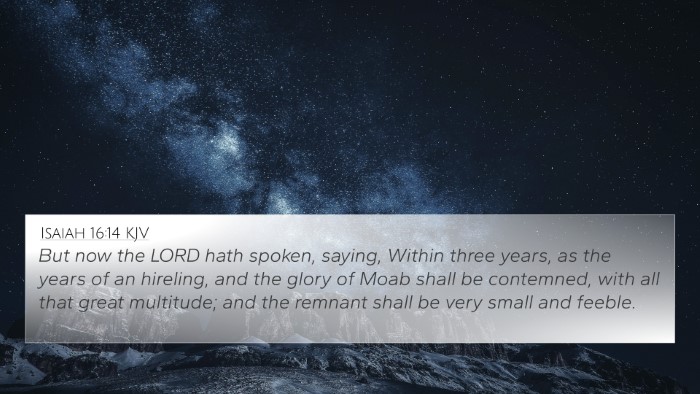Understanding Leviticus 25:50
Leviticus 25:50 states, "And he shall reckon with him that bought him from the year that he was sold to him unto the year of jubilee: and the price of his sale shall be according to the number of years, according to the time of a hired servant shall it be with him." This verse appears within the context of the laws governing the Jubilee year and the earthen relationships between Israelites in ancient society.
Context and Significance
This verse is part of the detailed legal code given to Israel concerning the ownership of land and people. The intent was to maintain fairness and equity in transactions and highlight God’s purpose of restoration, providing insights into social justice as instituted by Divine law.
Key Themes
- Redemption and Restitution: The system of buying and selling, including the release of indentured servants during the Jubilee, reflects the underlying theme of redemption in God's laws.
- Time and Value: The valuation of a servant's worth diminishes based on the remaining years until the Jubilee, emphasizing fairness in transactions.
- Divine Ownership: This chapter reflects God’s ownership of land and people, resembling themes of stewardship and divine authority.
Comparative Analysis
In interpreting Leviticus 25:50, it’s essential to cross-reference other biblical texts, providing a broader understanding of its significance. Here are some relevant verses:
- Exodus 21:2-6: Discusses the laws concerning Hebrew servants, relating to the timeframe of servitude and emancipation.
- Deuteronomy 15:12-15: Provides further insight into the treatment of slaves and the year of release, reinforcing the principle of redemption.
- Isaiah 61:1: Highlights the proclamation of liberty as a messianic announcement aligning with the Jubilee's themes of freedom and restoration.
- Matthew 26:15: Reflects on the value placed on human life and the betrayal of Christ, offering a poignant socio-economic commentary.
- Galatians 4:4-5: Discusses redemption through Christ, connecting the themes of deliverance across the Testaments.
- 1 Peter 1:18-19: Emphasizes the precious value of redemption, paralleling the worth specified in Leviticus.
Biblical Commentary Insights
Taking insights from notable commentators can enrich our understanding of this verse:
Matthew Henry's Commentary
Matthew Henry emphasizes the moral obligation tied to the laws regulating economic activities, illustrating that these statutes reflect God's concern for justice and compassion in human relationships.
Albert Barnes' Notes
Albert Barnes points out the importance of tracking the years of service and how this served as a protective measure for the Israelites. He reflects on the fairness that God’s legislation sought to establish among the covenanted people.
Adam Clarke's Commentary
Adam Clarke highlights that the calculation of the servant's worth based on the remaining years reflects both principle and practicality, noting how this governed social and economic behavior within Israel.
Tools for Bible Cross-Referencing
Engaging with the Bible requires tools for effective cross-referencing:
- Bible concordances help in locating verses related to specific themes.
- Bible cross-reference guides assist with thematic connections between various scriptures.
- Digital Bible study apps offer interactive cross-referencing capabilities for deeper study.
- Scriptural chains for thematic Bible verse connections create a pathway for understanding related verses.
Practical Application
Understanding Leviticus 25:50 encourages believers to reflect on principles of justice, equity, and God’s sovereign provision. It challenges us to consider how we value one another and engage in relationships with fairness and integrity.
Conclusion
Leviticus 25:50 provides profound insights regarding economic justice and human relations as ordained by God. Through exploring this verse's context, cross-references, and commentaries, we uncover layers of meaning that highlight the character of God and His intentions for humanity. Engaging in comparative studies through thematic cross-referencing allows for deeper revelations of Scripture, enriching our understanding of biblical teachings.









